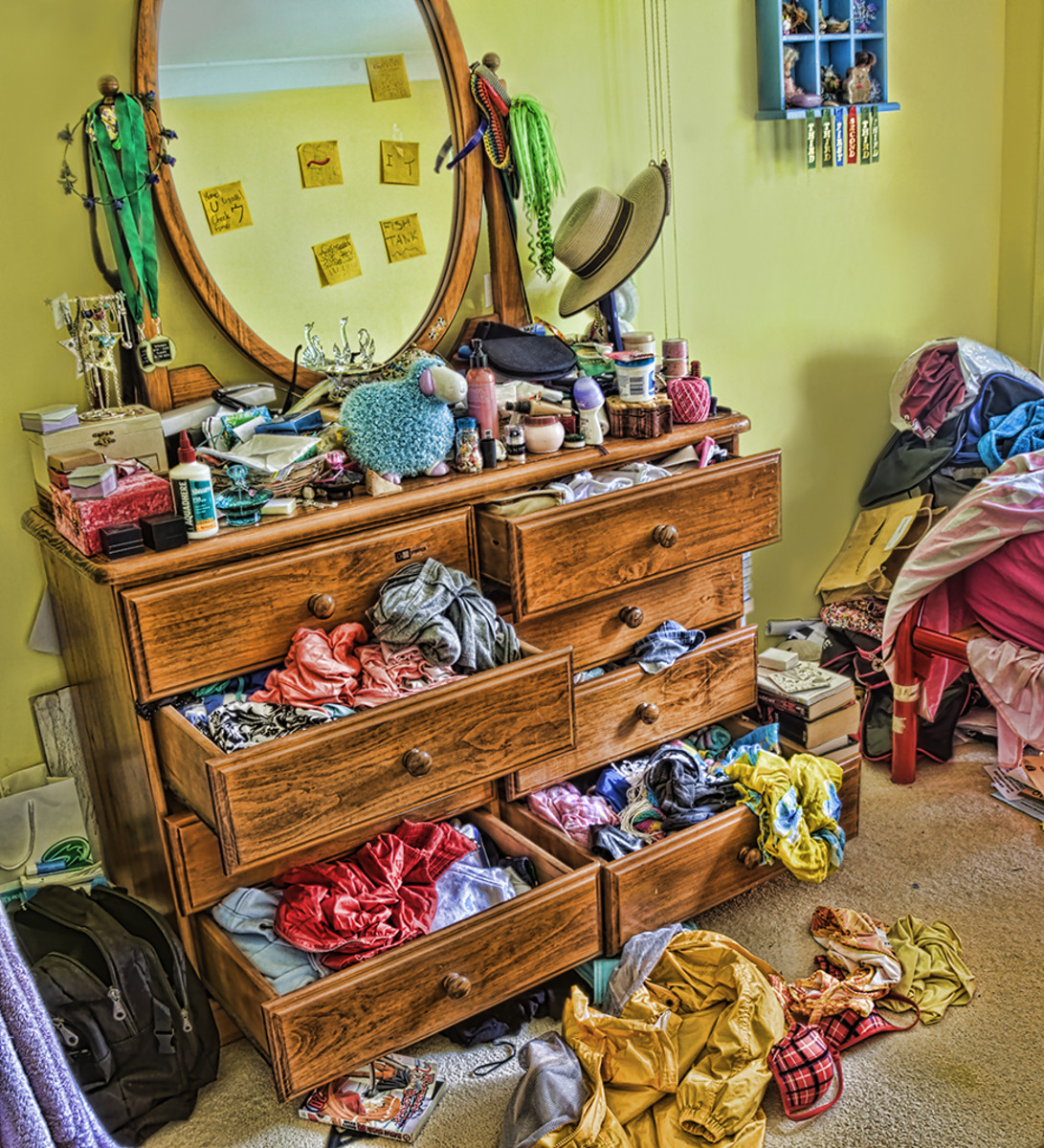
The Perils of a Messy Room: A Comprehensive Guide to Reclaiming Your Space
In the tapestry of life, our living spaces hold a profound significance. They serve as sanctuaries, where we seek solace, recharge our batteries, and embark on various endeavors. However, when chaos and clutter reign supreme, our rooms can transform into breeding grounds for stress, inefficiency, and disharmony. A messy room is not merely an eyesore; it can have detrimental effects on our physical and mental well-being.
1. The Physical Toll of a Messy Room:
A cluttered environment can lead to a myriad of health issues. Dust and allergens accumulate readily in disorganized spaces, exacerbating respiratory problems like asthma and allergies. Unkempt rooms also pose a higher risk of accidents, as misplaced objects can cause tripping hazards. Moreover, the stress induced by a chaotic environment can manifest physically, leading to headaches, fatigue, and even digestive issues.
2. The Mental Impact of a Messy Room:
The state of our physical environment has a profound influence on our mental and emotional well-being. Studies have shown that individuals living in cluttered spaces experience higher levels of stress, anxiety, and depression. The constant visual stimulation and mental clutter that accompany a messy room can make it challenging to focus, relax, and unwind. Additionally, the shame and embarrassment associated with a disorganized living space can further contribute to negative mental health outcomes.
3. The Productivity Drain of a Messy Room:
When our surroundings are cluttered and disorganized, it becomes increasingly difficult to maintain focus and productivity. The visual distractions and the mental effort required to navigate a messy space can hinder our ability to concentrate and complete tasks efficiently. This can lead to a domino effect, where procrastination, discouragement, and a sense of overwhelm become the norm. The time and energy wasted searching for misplaced items further exacerbates the productivity drain, creating a vicious cycle that can be challenging to break.
4. The Relationship Impact of a Messy Room:
A messy room can strain relationships, both within families and among roommates. When clutter and disorganization become chronic, it can lead to misunderstandings, arguments, and resentment. Differing attitudes towards tidiness can create a breeding ground for conflict, as one person's mess can be another person's source of stress. Maintaining a clean and organized living space is essential for fostering harmony, respect, and mutual understanding among those who share it.
5. The Financial Burden of a Messy Room:
In addition to its physical, mental, and relationship consequences, a messy room can also have financial implications. Disorganized spaces often lead to lost or misplaced items, resulting in unnecessary purchases to replace them. The inability to locate important documents or bills on time can lead to late fees and missed opportunities. Furthermore, the stress and anxiety caused by a messy room can lead to impulsive spending as a coping mechanism, further straining financial resources.
Reclaiming Your Space: A Step-by-Step Guide to a Tidy Room:
If you find yourself struggling with a messy room, know that you are not alone. Many people face this challenge at some point in their lives. The good news is that it is possible to reclaim your space and create a more organized and harmonious environment. Here's a step-by-step guide to help you get started:
1. Set Clear Goals:
Before embarking on your tidying journey, it's essential to define what you want to achieve. Do you want to declutter your entire room, or focus on a specific area? Setting clear goals will help you stay motivated and focused throughout the process.
2. Start Small:
Trying to tackle the entire room at once can be overwhelming, leading to discouragement and giving up. Instead, start with a small section or task, such as organizing your desk or sorting through your clothes. Once you see progress in one area, you'll be inspired to continue with the rest of the room.
3. Declutter and Donate:
One of the most effective ways to reduce clutter is to declutter regularly. Go through your belongings and be ruthless in letting go of items you no longer use, need, or love. Donate unwanted items to charity or sell them online to make some extra cash.
4. Create a System:
Once you've decluttered, it's time to create a system for organizing your belongings. This could involve using storage containers, shelves, drawers, or even a simple filing cabinet. The key is to find a system that works for you and stick to it.
5. Maintain Your Space:
The key to keeping your room tidy is to maintain it regularly. Take a few minutes each day to put things back where they belong and tidy up any clutter. This will prevent the mess from accumulating and becoming overwhelming again.
6. Enlist Help:
If you're struggling to declutter or organize your room on your own, don't hesitate to enlist the help of a friend, family member, or professional organizer. Having someone to assist you can make the process more enjoyable and efficient.
Embark on Your Tidying Journey Today:
A clean and organized room is not just a dream; it's a reality that you can achieve with dedication and a bit of effort. By following the steps outlined in this guide, you can reclaim your space, improve your physical and mental well-being, boost your productivity, strengthen your relationships, and save money. The journey to a tidy room begins with the click of a button. Take the first step today and click on the banner below. You deserve to live in a space that reflects your best self.
[Banner: Embark on Your Tidying Journey]

0 comments: